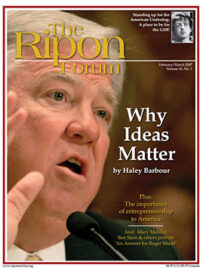Farm safety net programs are designed to ensure America’s farmers and ranchers have the stability to provide a safe, affordable, and abundant food and fiber supply to American consumers.
Our agricultural productivity ensures that we are not dependent on foreign sources for our very basic needs and that we have a sufficient and reliable food and fiber supply that benefits all Americans. In fact, Americans spend less than 10% of their income on food, less than consumers in any other country in the world.
Farm policy helps make that possible by stabilizing the market and ensuring the production of our most basic needs. Domestic food production ensures that American consumers have access to a safe and affordable food supply, and farm policy helps to create stability so that year after year, farmers are able to produce the food consumers need to survive.
We often take for granted the availability of food in this country. We assume that our grocery store shelves will always be stocked because they always have been. American consumers have not experienced wild fluctuations in the price of food or fiber nor a shortage of supply because our farm policy was designed to ensure a constant, reliable supply of our basic commodities.
 Farm policy also ensures that America’s food and fiber is safe. Domestic production of our basic commodities ensures that we control the entire production process from planting to harvesting to marketing. Strict safety regulations are applied and American consumers can count on those standards.
Farm policy also ensures that America’s food and fiber is safe. Domestic production of our basic commodities ensures that we control the entire production process from planting to harvesting to marketing. Strict safety regulations are applied and American consumers can count on those standards.
More than just the food to fuel our bodies, agriculture products and by-products are found in a wide variety of everyday necessities such as medications, soap, paper, clothing, tires, building supplies, books, and fuel, just to name a few. Every single American is a beneficiary of U.S. agriculture every single day of their lives, yet sadly, many don’t know what is entailed in getting the products they need into their hands. As consumers become farther and farther removed from our farms and ranches, the less consumers understand what is involved in how food products get from the farm to the table.
Farming and ranching are not easy occupations, and the production of America’s food and fiber supply is an inherently risky enterprise. A high yielding crop in one year does not guarantee the same yields the following year or growing season. Producers have little to no control over the weather conditions, disease, or pest and insect invasion, which can damage or destroy crops and livestock without warning. A farmer may be on track for record yields and a week before harvest, an ice storm may claim all of his or her crops.
U.S. farm policy under the 2002 Farm Bill costs each American roughly 4 pennies per meal.
The farm safety net helps mitigate the risk of farming and ranching to ensure a reliable supply system. Farm policy creates stability in our market so that our food supply remains consistently affordable and safe. By providing producers stability in an increasingly volatile environment, we can better ensure our self-sufficiency and independence.
Any program or policy initiative that utilizes the taxpayer’s money should be spent wisely and for the benefit of those whose money is being used. American agricultural production exists solely to meet the food and fiber needs of the American people. Since 2002, the cost of farm safety net programs averaged roughly $8.5 billion a year. These programs account for less than one half of 1 percent of total federal spending. No one will argue that billions of dollars are no big deal, especially when those dollars belong to American taxpayers; however, when you break down the cost of the farm safety net into what it costs each consumer, the numbers paint a dramatically different picture.
U.S. farm policy under the 2002 Farm Bill costs each American roughly 4 pennies per meal. At less than 10%, the American consumer is spending far less of their income on food than any other consumer in the world today or at any other time in history. In the United Kingdom, the next lowest country, consumers spend more than 15% of their income on food.
It is the free enterprise system utilized by hard working farmers and ranchers and supported by a modest government safety net that rewards American consumers with the safest, most abundant, and most affordable food supply in the world. RF
Bob Goodlatte represents the 6th District of Virginia in the U.S. House of Representatives. He serves as the Ranking Republican on the Agriculture Committee.




